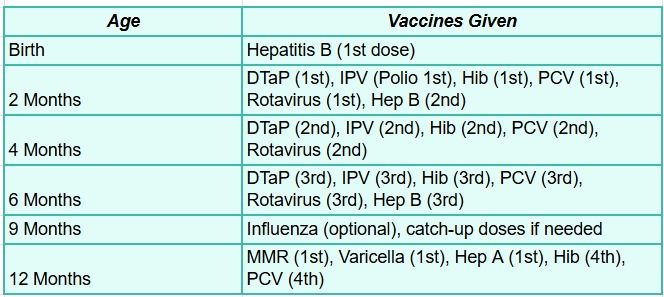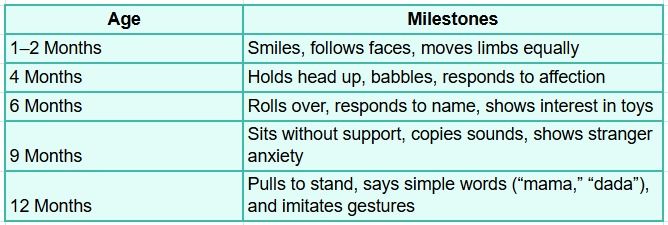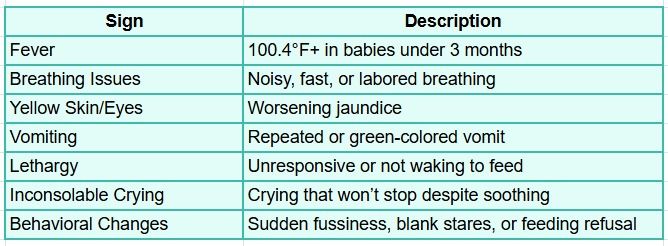Why Role of the Pediatrician with your newborn baby matters

The first year of a baby’s life is filled with rapid growth, important milestones, and new challenges for parents. From feeding and sleep patterns to developmental checkups and vaccinations, the role of a pediatrician is monumental, and having the right one by your side makes all the difference.
A trusted pediatrician not only monitors your baby’s physical and emotional health but also offers guidance, reassurance, and timely care when it matters most. At Pristine Pediatrics in Houston, we’re here to support you through every stage of your child’s first year with expert, compassionate care.
1. The First Pediatric Visit: Right After Birth
Within 3–5 days after birth or 48–72 hours post-discharge, your newborn’s first pediatric visit checks vital stats like weight, length, and head size, along with feeding patterns and screening results. It’s a time to discuss feeding, sleep, diaper care, and parenting concerns. Developmental checks and parental well-being are also reviewed.
Key Points:
- Visit: 3–5 days after birth or 48–72 hrs post-discharge
- Checks: Growth, feeding, screenings, Hep B vaccine
- Topics: Sleep, diapers, cord care, parenting questions
- Extras: Milestone tracking, postpartum support
- Importance: Strong health start, trusted care relationship
2. Regular Well-Baby Visits: Building a Health Timeline
Regular well-baby visits are vital in your child’s first year to monitor growth, give vaccines, and catch early signs of issues. These checkups support both baby and parent with health tracking and expert guidance.
Well-Baby Visit Schedule

What’s Covered
- Growth: Weight, length, head circumference
- Physical Exam: Heart, lungs, eyes, reflexes
- Feeding: Breast/formula checks, solids from 6 months
- Vaccines: Per CDC schedule (Hep B, DTaP, etc.)
- Parent Support: Sleep, teething, postpartum wellness
Why It Matters
- Detects early concerns
- Ensures milestone progress
- Builds trust with your pediatrician
3. Vaccination Guidance and Immunization Schedule
Vaccines protect your baby from serious illnesses starting at birth. The Hepatitis B vaccine is usually administered within 24 hours at the hospital or at the first visit.
Infant Immunization Schedule: Birth to 12 Months
At birth, infants receive their first dose of the Hepatitis B vaccine. By the age of 2 months, they are given the first doses of DTaP, IPV (Polio), Hib, PCV, and Rotavirus vaccines, along with the second dose of Hepatitis B.
At 4 months, the second doses of DTaP, IPV, Hib, PCV, and Rotavirus are administered. When the child reaches 6 months, they are scheduled for the third doses of DTaP, IPV, Hib, PCV, and Rotavirus, as well as the third Hepatitis B shot. At around 9 months, the Influenza vaccine may be introduced and any catch-up doses can be given if necessary.
By 12 months of age, children typically receive the first doses of MMR, Varicella, and Hepatitis A, along with the fourth doses of Hib and PCV.

Role of Pediatrician in Immunization
- Administers all vaccines safely during well-baby visits
- Explains the benefits and possible side effects of each vaccine
- Provides reliable, evidence-based guidance for vaccine concerns
- Maintains accurate records and ensures on-time scheduling
By adhering to the CDC-approved vaccine timeline, we ensure your child’s safety from the very start. Our commitment to the CDC-recommended immunization schedule helps safeguard your child from the earliest stage.
4. Monitoring Developmental Milestones
Developmental milestones track your baby’s physical, cognitive, and emotional progress. The role of pediatrician is important as they observe these markers closely to ensure healthy growth and to intervene early if needed.
Major Areas of Development
- Language: Babbling, responding to name, first words
- Motor Skills: Rolling, sitting, crawling, pulling to stand
- Social/Emotional: Smiling, recognizing caregivers, stranger anxiety
- Cognitive: Exploring, learning routines, using gestures
Sample Developmental Milestones by Age:
Between 1 and 2 months, babies begin to smile, follow faces, and move their limbs equally.
By 4 months, they can usually hold their head up, babble, and respond to affection. At around 6 months, most infants start to roll over, respond to their name, and show interest in toys.
By the age of 9 months, they are often able to sit without support, copy sounds, and may display stranger anxiety. Reaching 12 months, children typically pull themselves up to stand, say simple words like “mama” or “dada,” and imitate gestures.

How Pediatricians Track Milestones
- Examine muscle tone, reflexes, and movements
- Observe interactions, eye contact, and vocal responses
- Provide referrals if needed (e.g., can a pediatric provider diagnose autism and prescribe ADHD medication?
- Address parental concerns about behavior or developmental pace
Why Early Monitoring Matters
- Identifies potential delays or neurological issues early
- Enables prompt referrals to speech, physical, or occupational therapy
- Improves long-term cognitive, emotional, and physical outcomes
- Empowers parents with support, guidance, and peace of mind
5. Nutrition and Feeding Guidance for Infants
Feeding is a major focus during well-baby visits. Pediatricians monitor feeding patterns and growth, ensuring your baby is thriving, whether breastfed, formula-fed, or both.
Hunger & Fullness Cues

Diaper Output: A Sign Baby is Eating Well
- Wet diapers: 6–8 per day
- Soiled diapers: At least 1–2 daily (varies with age and feeding type)
Addressing Parental Concerns & Emotional Support
Pediatricians support not just your baby’s health but also your emotional well-being during early parenthood. At Pristine, the role of pediatrician extends beyond the baby’s health. Pediatricians regularly check in on parents’ emotional health, especially during the postpartum period.
When to Call the Pediatrician: Key Red Flags
As parents, it’s natural to keep a close eye on your little one’s health. Some signs, however, may mean it’s time to check in with your doctor right away.
If your baby under 3 months has a fever of 100.4°F or higher, it’s important to seek medical advice. Pay attention to breathing that seems noisy, too fast, or looks like your baby is working hard to breathe.
A yellowish tint in the skin or eyes that appears to be getting worse can be a sign of jaundice that needs attention. Frequent vomiting or green-colored vomit is also something to bring up with your pediatrician.
If your little one seems very sleepy, unresponsive, or doesn’t wake up to feed, it’s best to get them checked. Similarly, crying that continues despite your comfort and soothing may signal discomfort worth investigating.
Lastly, watch for sudden changes in behavior such as unusual fussiness, blank stares, or refusal to feed—trust your instincts and don’t hesitate to reach out for support.

From regular checkups to emotional support, we’re here for your family. If you’re searching for a pediatric provider who accepts Medicaid near you or wondering how often pediatric provider newborn appointments are needed—we’ve got the answers and care you deserve.
Schedule your baby’s first visit with a Pristine pediatrician today and experience the comfort of having a compassionate expert by your side—every step of the way.
Frequently Asked Questions (FAQ’s)
Q1. Why is pediatrics important?
Ans. The role of pediatrician is crucial. Pediatric care ensures timely treatment of childhood illnesses, supports healthy growth, and promotes well-being through preventive care, especially during early development.
Q2. What are the 5 basic needs of a child?
Ans. Shelter, food, clothing, medical care, and protection from harm are essential for a child’s survival and development.
Q3. How important is the first year of life?
Ans. The first year is critical for brain and body development; it shapes future health, learning, and behavior, making nurturing care essential.
Q4. What makes a healthy child?
Ans. A healthy child receives proper nutrition, healthcare, safety, emotional security, and early learning opportunities, key components of nurturing care.


